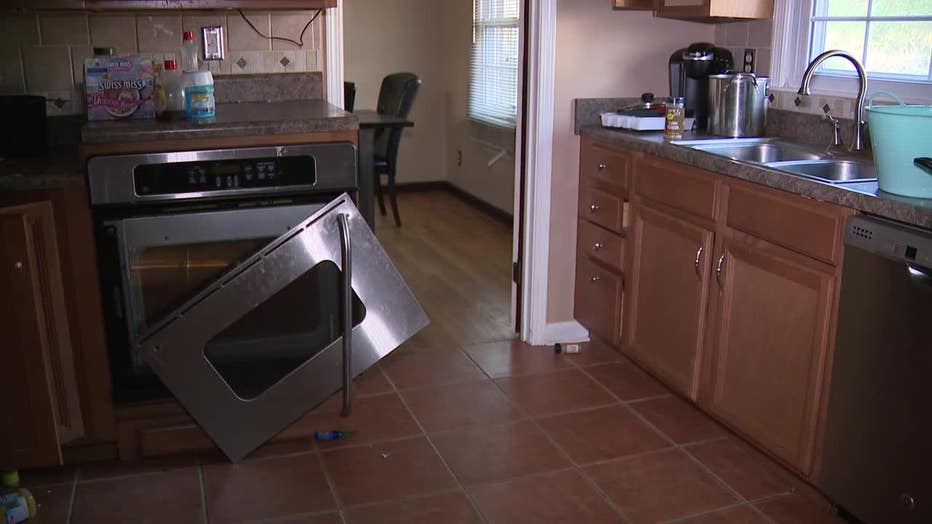Squatters rights in Georgia: What you need to know

What Georgians need to know about squatters rights
Your 'home sweet home' could become a nightmare if you don't keep an eye on it due to Georgia's law dealing with squatters.
DEKALB COUNTY, Ga. - As reported by FOX 5 last week, your "home sweet home" may turn into a nightmare if you don’t keep a close eye on it. Deployed DeKalb soldier Duncan Fowler was unable to return to his Decatur home recently when he finished his assignment. When he arrived back from his year-long deployment, he found his house had been occupied by squatters, and they simply refused to leave.
To explain how this can happen, FOX 5 real estate expert John Adams took a closer look at squatter's rights in the state.
SOLDIER SAID HE RETURNED TO DECATUR HOME TO FIND IT DAMAGED BY SQUATTERS
Adams says believe it or not, if you own a house in Georgia and someone moves in and occupies that house without your knowledge or permission, they are considered a squatter under the law. And as a squatter, they have certain rights.

Squatters damage soldier's home during deployment
Duncan Fowler will have to go through the eviction process after he returned home from a year-long deployment to find trash and property damage from squatters.
What is squatting?
Squatting is the unauthorized use of real estate, and was established in colonial times to foster development of abandoned land. The idea is that if you openly occupy a parcel of land (or even a house) for long enough, it eventually becomes yours.
So, in Fowler's case he returned home to find a family living in his house and called the police. But he quickly found out that squatting is very different from trespassing, at least in the eyes of Georgia law. If the squatters are already in possession of the property, the police can’t and won’t help you. You’ll have to try to evict the squatter.

What are squatters' rights in Georgia?
The owner or landlord has to go through an eviction progress. Squatting is considered a civil matter in Georgia.
Squatter's rights in Georgia
Unauthorized occupancy of real estate in Georgia is considered a civil matter, and must be settled in the courts. Because these people were already occupying the property, they were not trespassing, but instead, they were "squatting."
Over time, squatters can potentially gain a form of ownership of the property they occupy through a legal doctrine known as adverse possession. Originally, this doctrine gave homesteaders a legal way to occupy "unclaimed" lands.
In Georgia, a squatter can make a claim of adverse possession under "color of title" after seven continuous years of occupancy.
Then the squatter must at least be able to prove to a court that their occupancy includes specific factors:
- It has been continuous and without interruption.
- It has been exclusive to the occupant.
- It has been open, notorious, and discoverable.
- It included actual possession of the property.
- The squatters are able to make a hostile claim

This is very rare today, and when it does happen, it is almost never successful. But because the law is slow to change, the process for establishing a "squatter’s rights" claim remains on the books.
The good news is that Fowler finally was able to regain possession of his own house, although the dwelling appears to be in poor physical condition.
The bottom line is, if you own any piece of real estate, make sure that you prevent others from occupying that real estate. It is part of your responsibility as the owner. And if you do find that a squatter has moved into your property, call a title lawyer quickly.
WATCH: FOX 5 NEWS LIVE COVERAGE

